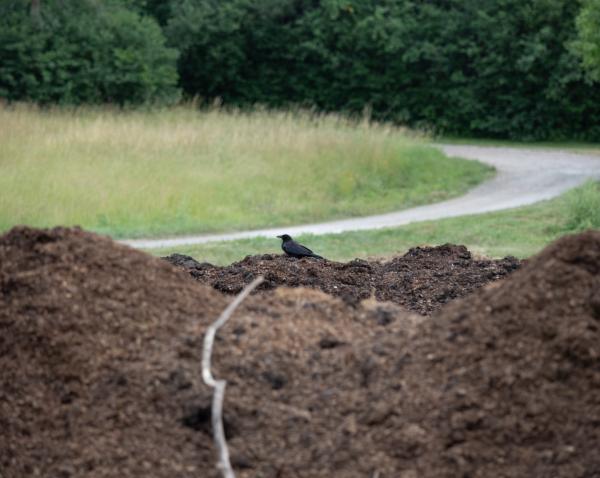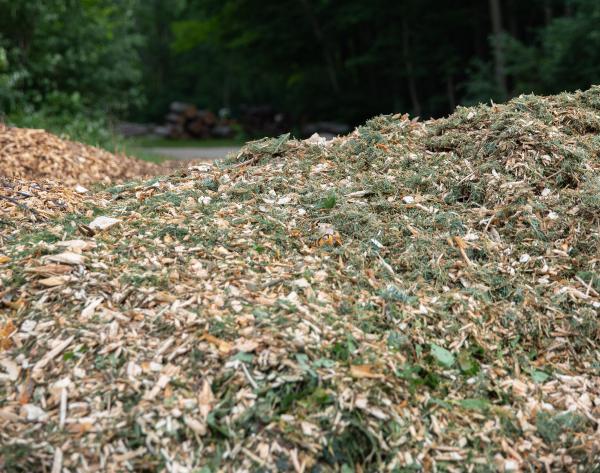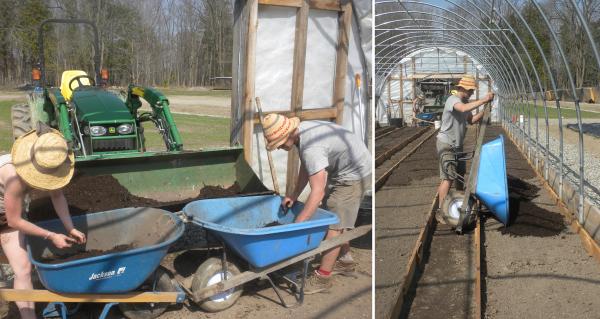From Food Waste to Compost - Enriching Farm Soil
As of July 1, Vermont is the first state in the nation to enact a law that essentially makes composting mandatory for everyone. It’s part of Act 148, Vermont’s Universal Recycling Law, which passed in 2012.
For many years, Shelburne Farms has been actively composting (managing the aerobic decomposition of organic materials by microorganisms) for the health of our soils and crops. Although we do it on a larger scale than the average backyard gardener, the principles are the same.
It starts by reducing food waste. Former Inn Executive Chef Jim McCarthy was passionate about reducing food waste in the Inn kitchen, and he developed many creative recipes based on using the whole plant or the whole animal. (Chef John Patterson is carrying that commitment forward.) Some of that food waste has been fed to our Children’s Farmyard pigs. (They love it!)
These collective efforts show up in the numbers: Over the last five inn seasons, we’ve reduced food scraps from the Inn every year -- from an estimated 31,400 lbs in 2015 to 22,700 lbs in 2019. That’s a lot of 20-gallon bins of food waste!
Yet food waste is not the only ingredient in our operation, and definitely not the largest. Effective composting requires “green” ingredients for nitrogen and “brown” ingredients for carbon (also oxygen and water.) Our “greens” include the food waste, as well as manure from the Children’s Farmyard and from our neighbors at One Mitten Farm. For “browns,” we use animal bedding and wood chips from on-site tree harvesting and lumbering.
This recipe generates a lot of compost. In 2019, we spread 126 cubic yards of the black gold, or about 50 tons. This gets spread each fall and spring over about two acres of land, including our Market Garden fields and the Education garden behind the Farm Barn.
Is it a lot of work? Yes and no. Unlike a home composting system, we gather our ingredients from various locations across the Farm, so there’s some schlepping involved. We then turn the compost piles with a tractor about once a month to accelerate the decomposition. Not a back breaker.
Ultimately, where composting is concerned, the proof is in the produce. Our organic Market Garden vegetables and fruits thrive in the soils enriched by organic material right from the Farm. That soil also is healthy, rich in biodiversity both above and below ground, and helps sequester carbon.
“It’s the magic and simplicity of it,” says Market Garden manager Josh Carter, “how compost actually gets eaten and digested by billions of critters that we can’t see. And all you really have to do is get the ingredients right and make sure there's food, water, and oxygen.”
Here are some sources to help you reduce your food waste and get your compost ingredients right:
- Food Scraps, Vermont Department of Environmental Conservation
- Let’s Scrap Food Waste, and more from the Chittenden Solid Waste District
- Backyard Composting Basics, Rodale Institute
- Composting 101: What You Need To Know About Vermont's Food Scrap Ban, Vermont Public Radio
A COVID-19 Addendum: While our Inn and Restaurant are closed for the 2020 season, Chef John Patterson and a team of staff are still using Market Garden produce to create delicious dishes from for curbside orders (and generating food scraps for composting!). Find out what dishes are available and place your order!


